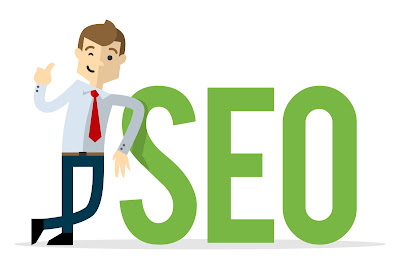Expert Tips For Using Search Engine Optimization To Your Advantage
Most website owners who are just starting up are more than happy to simply market using paid-for ads and articles, and they simply cross their fingers that these methods will be effective. In the short-term, some of these methods might show a little success. Only good search engine optimization can really benefit the website's visibility and lead to long-term success. By using the advice in this article, you can improve your website's visibility.
When optimizing your site for Google, do not use "semi spam" copy. Recent Google algorithm changes penalize not only obvious spam (e.g. "Get X@naX from 0verseas"), but also low quality content that has no useful purpose other than to drive visitors to a site. Articles spun by computers are a good example of this kind of content.
Use alt tags for images and span element titles to your advantage. Search engines look at a site's code, not what is actually visible to a user, so if your keyword is "cat" and there is a picture of a calico cat on your site, using an alt tag of "a calico cat" for the image will expose the search engine to your keyword even if the user never sees it. The title of a span element works in the same way.
Writing and posting reviews for your product are a great way to increase your traffic. By creating a review of the product, targeting the product keywords and getting backlinks to the review to enhance its search rating, you can create a mindset for buying and direct those viewers appropriately.
To optimize your page's search results, bold your keywords at least twice, throughout your web page. Try to keep them as close to the top of the page as possible, but keep your text natural and non-awkward. It is important to include your keywords in the body of your website properly, so that search engines will be able to detect them. The more well-placed your keywords are, the more likely that your page will appear higher in the search results.
Code your site for optimal search engine presence. This means avoiding both nested tables and frames. If you must include these in your page layout, be sure to offer an alternative option which is linked on each page. Search engine spiders have a difficult time indexing tables and frames, plus they make pages load more slowly for site visitors.
Generate many pages that focus on specific things individually, rather than putting a slew of content all on one page. Search engines may categorize your content as spam if they do not see a logical organization of your ideas and subjects, so bucketing subjects into different pages will make your site seem more legitimate to search engines.
Include some secondary keywords in your site that relate to your primary keyword phrase. Make sure to be very judicious in your use of the secondary keywords as you do not want to dilute from your main focus. Try to keep the density of the secondary's to no more than 1 or 2 percent of the site.
Add a blog to your website in order to maintain the freshness of your site's content and to target specific long-tail keywords, both of which will increase your page rank. You can also place short blurbs from blog posts on other areas of your site to refresh the content on pages that are not typically updated.
To make sure your site doesn't wind up blacklisted by search engines, check out other sites hosted on a server before hosting your own site there. If your website shares a server with spam sites, they can have a negative effect on your own page rankings. Be sure to use a server that only hosts quality websites.
When you remove a page from your website, really remove it! Implementing a 301 redirect is great, but search engines may still find the original page through links to it on other sites or even on your own website. Delete all obsolete files from your server when they're no longer needed.
When you make changes, back up your website. This may seem like common sense, but only a very small percentage of webmasters actually back up their website to their own computer (or another server, depending on the size of the backup.) Backups fail, so relying on a single backup done by your host could be dangerous!
Omit session IDs and other unnecessary parameters from your URLs as part of good Search Engine Optimization. Short, to the point, URLs are advantageous because people can remember them and because search engines can more easily crawl and categorize them. The result will be more returns for your site!
You might actually be able to get some traffic to your site while your site is ranked on the back pages, but your traffic would exponentially increase as soon as you started to implement the proper SEO tactics. By using the tips you've just read in this article, you can start to raise the profile of your website.
THIS ARTICLE CREDITS TO:
http://seoexpertservices-ro.blogspot.in
Image Credits: allbusiness.com








Post a Comment